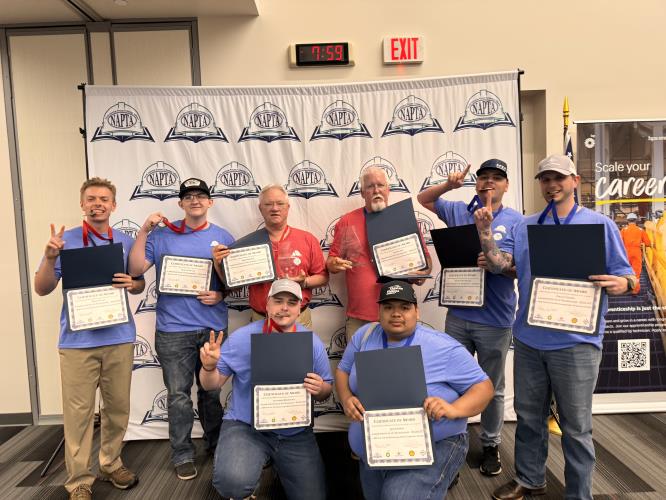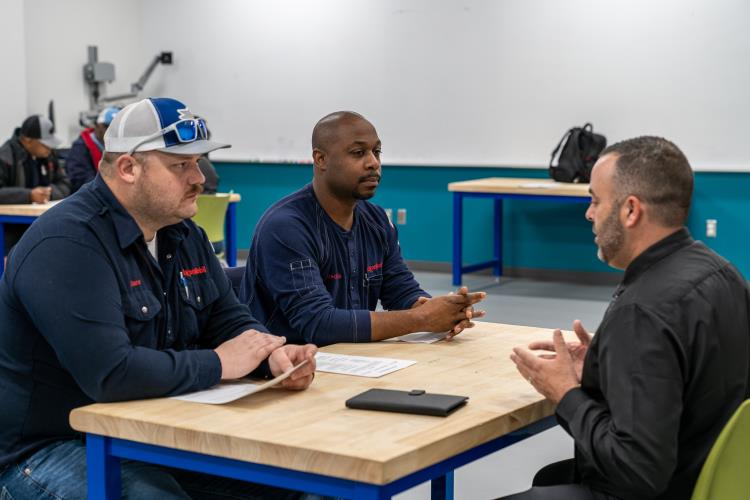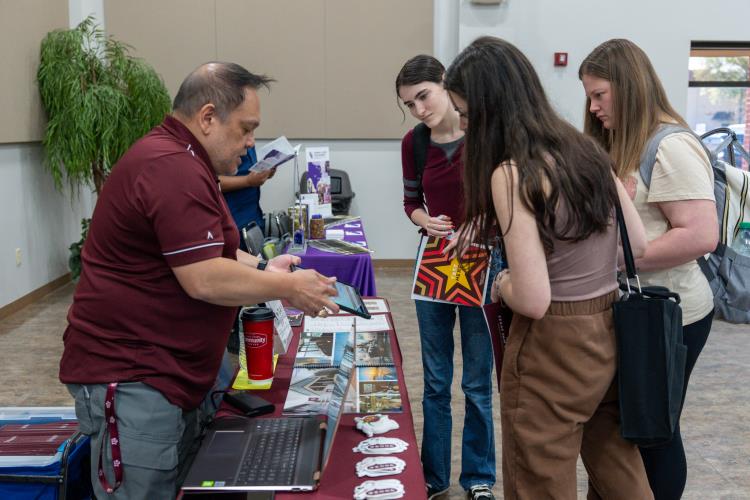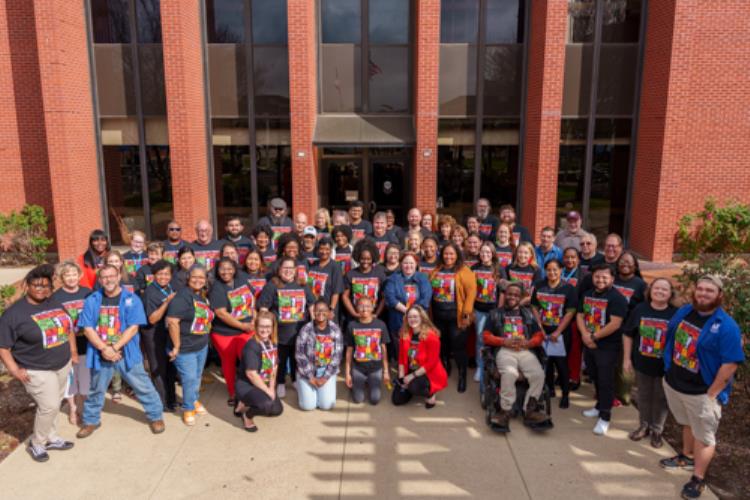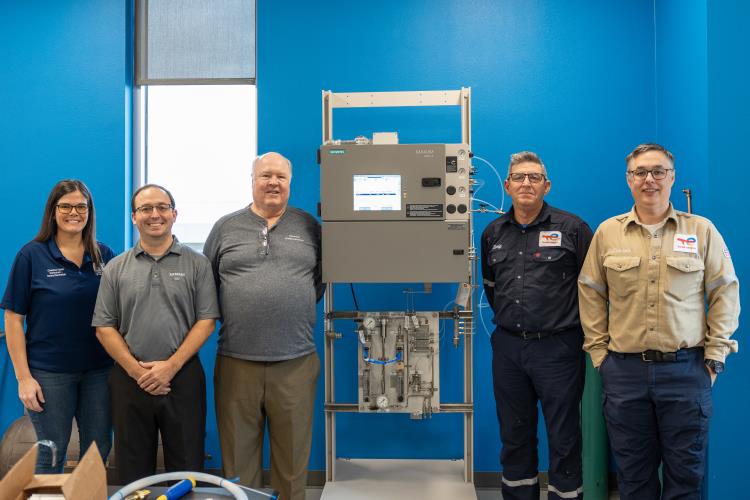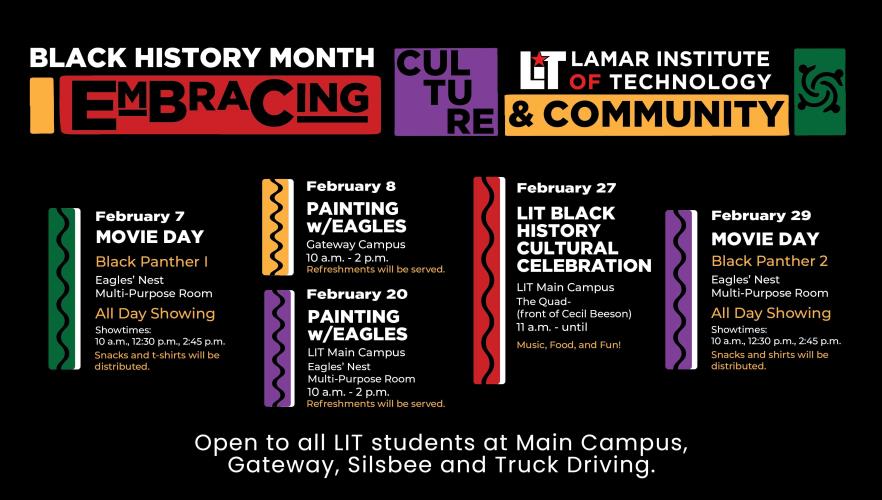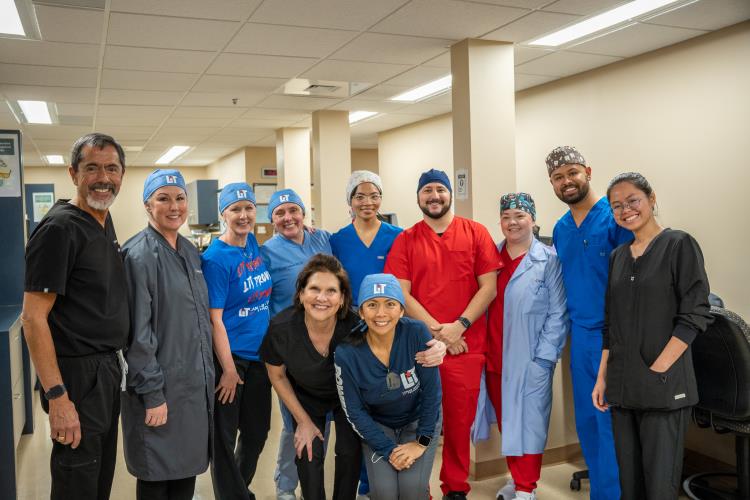First-ever CTE Signing Day highlighted by LIT students in Austin
3/11/2019
Beaumont- Four future Lamar Institute of Technology students received a total of $8,000 in ExxonMobil scholarships during the Texas legislature’s Career and Technical Education (CTE) resolution hearing at the first-ever CTE Signing Day. LIT President Dr. Lonnie L. Howard surprised the recipients each with a personal $1,000 Presidential scholarship for a total of $4,000, equaling a grand total of $12,000.
Joining Dr. Howard were Texas Workforce Commissioners, the Texas Workforce Commission and Rep. James White,: Chair Ruth Hughs, Julian Alvarez, Robert D. Thomas, Texas State Technical College Sr. Vice Chancellor Roger Miller; Cedar Valley College VP for Student Development Dr. Lisa Copprue, South Texas College Executive Officer for External Relations Mrs. Wanda Garza, and Training Director UA Local 286, Plumbers and Pipefitters Joe Cooper.
Recipients were: Jaalah S. Baaheth, Seth T. Carl, Savanna G. Mitchell and Nicholas R. Walker. Walker will pursue Advanced Engine Technology. The others are dual-enrolled in General Education.
“The U.S. Department of Labor has identified Lamar Institute of Technology as being number one in the state of Texas for having student graduates with the highest salary outcomes,” Dr. Howard said. “So, career and technical education has great value and great benefit both in the short term and in the long term. LIT not only produces great students, it produces degrees that work.”
The resolution also marked the Signing Day as an annual event that supports the goals of the governor’s Tri-Agency initiative by highlighting career and technical education programs to address the skills gap and encourage this educational path for Texas students.
Commissioner of Higher Education Raymund Paredes said, “The coordinating board works closely with the Texas Workforce Commission (TWC) and Texas Education Agency (TEA) to foster innovative career and technical education options that provide opportunities for students who may not have otherwise thought of themselves as college-eligible. Earning college credit while in high school will help students save money and offers them early exposure to the types of environments they’ll encounter either in the postsecondary classroom or in the workplace.”
